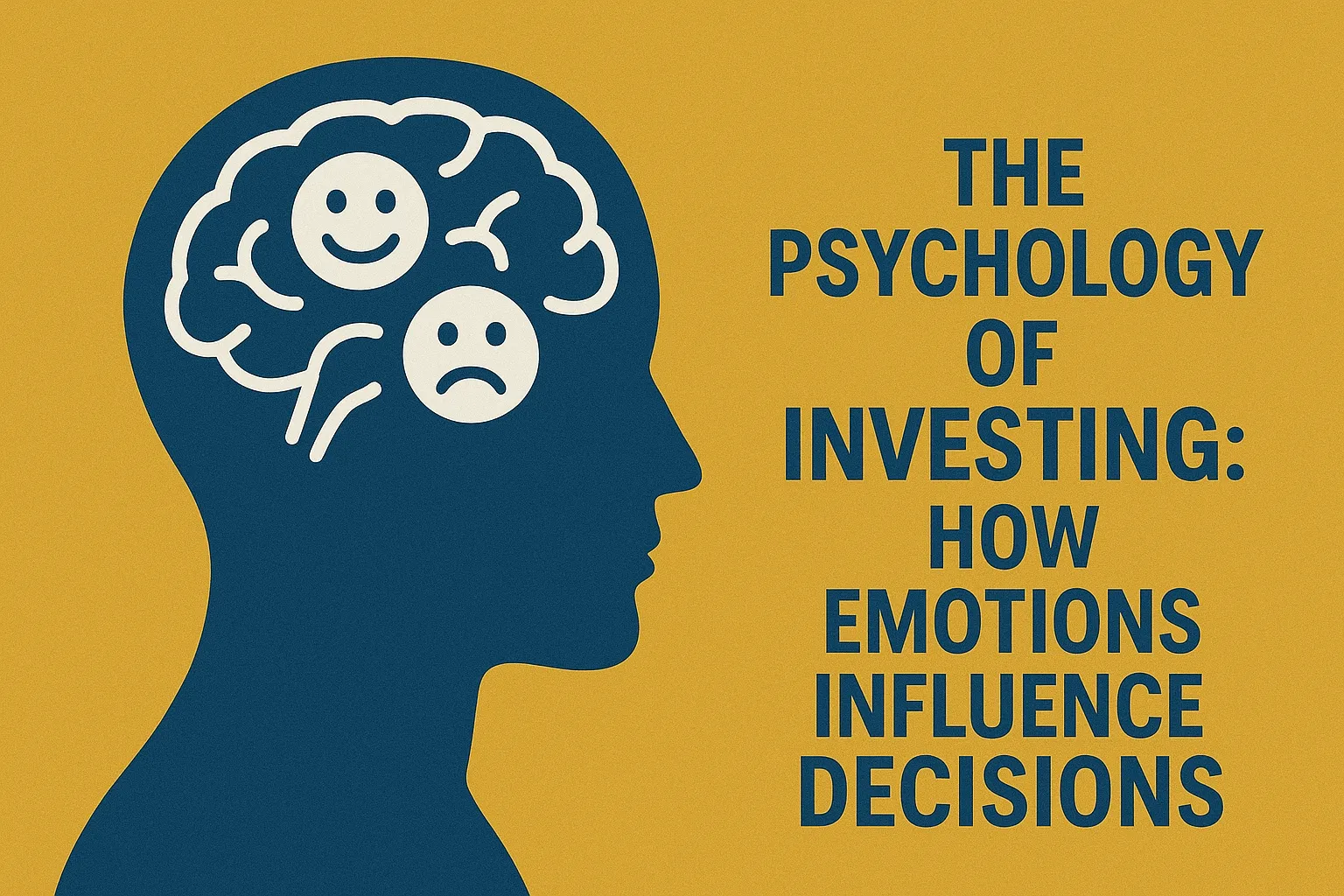
The Psychology of Investing: How Emotions Influence Financial Decisions
The Psychology of Investing: How Emotions Influence Financial Decisions
Successful investing isn’t just about numbers, charts, and data — it's also deeply connected to human behavior. Many financial mistakes are rooted not in logic, but in emotion. The emerging field of behavioral finance bridges the gap between traditional economic theory and human psychology, explaining why people often make irrational choices when it comes to money. In this article, we’ll explore how emotions impact investing and how understanding psychology can lead to smarter financial decisions.
Understanding Behavioral Finance
Behavioral finance is the study of how psychological influences and cognitive biases affect investor behavior and market outcomes. Unlike traditional finance, which assumes that investors act rationally, behavioral finance acknowledges that people are often driven by emotion, habit, and flawed judgment.
Common Emotional Biases in Investing
Investors are prone to several emotional and cognitive biases. Here are some of the most common:
- Loss Aversion: The pain of losing money is often stronger than the joy of gaining it. This leads many investors to avoid risk even when it’s logical to take it.
- Herd Mentality: People tend to follow the crowd. If everyone is buying a stock, others jump in — often without analyzing its fundamentals.
- Overconfidence: Investors often overestimate their knowledge or ability to predict market movements, leading to risky decisions.
- Confirmation Bias: Investors seek out information that confirms their beliefs while ignoring evidence to the contrary.
- Anchoring: Relying too heavily on the first piece of information (like a stock’s initial price) and failing to adjust to new data.
Market Bubbles and Crashes: Emotion at Scale
Many historical financial crises can be attributed to collective emotional behavior. For example:
- Dot-Com Bubble (1999-2000): Overconfidence and hype led to overvaluation of tech stocks, followed by a massive crash.
- 2008 Financial Crisis: Greed, denial, and herd behavior contributed to a housing market collapse that nearly brought down the global economy.
- Cryptocurrency Mania: Bitcoin and other crypto assets have seen dramatic price swings, often fueled by emotion and speculation rather than fundamentals.
The Role of Fear and Greed
Two emotions dominate the investing world: fear and greed. These forces often drive short-term decisions:
- Fear: Causes panic selling during market downturns, often locking in losses instead of waiting for recovery.
- Greed: Pushes investors to chase high returns without fully understanding the risks involved.
Recognizing when these emotions are influencing your decisions is the first step to managing them.
How to Overcome Emotional Investing
Controlling emotional impulses can lead to better long-term outcomes. Here’s how:
- Have a Plan: Create a well-defined investment strategy and stick to it, especially during market volatility.
- Diversify: Spreading investments across asset classes reduces risk and emotional stress.
- Automate: Set up recurring contributions and rebalancing to remove emotion from decision-making.
- Stay Informed: Educate yourself and focus on long-term trends rather than short-term noise.
- Work with a Financial Advisor: A professional can offer objective advice and act as a buffer against emotional reactions.
The Long-Term Mindset
One of the most powerful tools an investor can develop is patience. Emotional investing often leads to short-term decisions that can derail long-term goals. By focusing on your investment horizon, staying committed through market cycles, and resisting the urge to time the market, you greatly increase your chances of success.
Psychology in Different Market Conditions
Investor psychology can shift depending on the economic climate:
- Bull Market: Investors often become overconfident and ignore risk, leading to asset bubbles.
- Bear Market: Fear dominates, leading to panic selling and missed recovery opportunities.
- Sideways Market: Frustration and impatience can cause unnecessary portfolio changes.
Final Thoughts
Investing is as much a mental game as it is a financial one. Understanding the psychological traps that investors fall into is essential for building long-term wealth. By acknowledging and managing your emotions, you can make more rational decisions and avoid costly mistakes.
Remember: Mastering your mind is just as important as mastering the markets!
